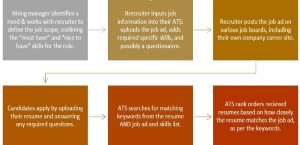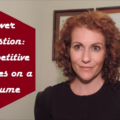Your resume is your key marketing material during your job search. Not only should it be tailored for each role to which you apply, but it should also be updated as your skills change. You can almost think of your resume as a living document.
When and how should you inform a potential employer of significant changes? The simple answer is: it depends. It depends on how long it has been since you’ve applied. It also depends on your relationship with the potential employer.
When did you apply?
If you have recently updated your resume but applied to a current opening with your ‘old’ one, then you can simply update your application on the organization’s online job application site. If you applied via e-mail, you can email a revised application and request that the potential employer disregards your previous application. The assumption here is that you have not interviewed with the organization in the past several months.
What is your relationship with the organization?
Say you applied to the organization in the past but did not get an interview. It is unlikely that the person receiving your resume will remember reading it the first time. As such, you can simply apply to the organization with your updated resume. If, however, you interviewed with the organization in the past several months, then the person receiving your resume may well remember you. The downside here is that the recruiter or HR contact may skip your profile based on the old information on your resume.
To avoid this, I recommend you send an email or place a telephone call to your contact person to let them know of any changes. These changes could be a result of having your resume professionally written. Further, your skills in a relevant area may have increased due to additional training or experienced gained in a contract or volunteer position. I do not recommend only mentioning these updates in your cover letter. After all, if your resume isn’t going to be read, it is unlikely that your cover letter would be read.
Final Thoughts
Many job seekers have turned to professional resume writers to help them get an edge on the competition. Having your resume written professionally will likely mean that it has changed significantly. I recommend that you update your online profile with the target employers to whom you have applied in the past. This will help you get noticed when recruiters search their online job application system for candidates.
I hope you found this post helpful. If you would like to share your experience, I’d love to hear from you.
Until next time, happy hunting!
For personalized advice, check out the services section here.









